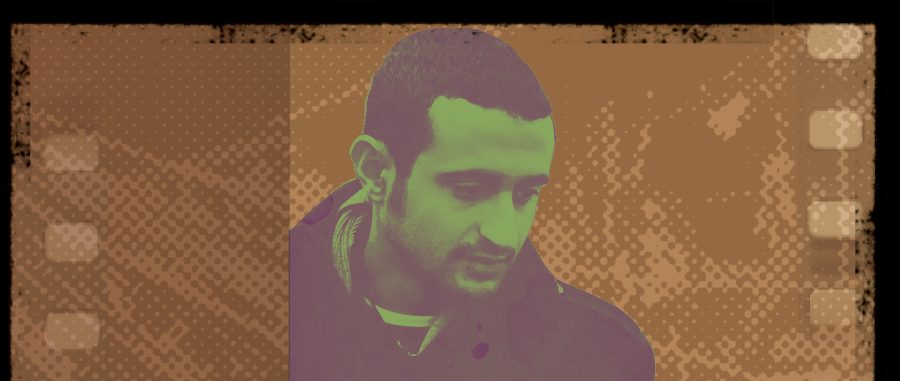Artist Protection Fund fellow presents recent projects
Yemeni filmmaker Ammar Basha shares new screenplay and documentaries to Wake Forest students
Many Wake Forest students and faculty gathered to hear from the Yemeni filmmaker in the Scales Fine Arts Center.
October 5, 2022
Wake Forest’s first Artist Protection Fund (APF) fellow, Ammar Basha, hosted a screening on Sept. 27 of his new documentaries — “Yemen: Equal or Selective Justice” and clips from his “Days in the Heart of the Revolution’’ series. Two Wake Forest students also performed a script reading of one of Basha’s screenplays. Many Wake Forest students and faculty gathered to hear from the Yemeni filmmaker in the Scales Fine Arts Center.
The Artist Protection Fund is an initiative of the Institute of International Education that exists to protect threatened artists by placing them at host institutions — like Wake Forest — for a full year so they can do their work safely and plan future projects. Additionally, the program provides fellowship funding, mentoring, and inclusion in a supportive network of artists.
During the screening, Basha presented several short documentaries illuminating stories of discriminatory court case victims during the Yemini Revolution, a nationwide protest movement against economic stagnation and corruption in the Middle East. Alongside working with non-governmental organizations to produce footage of unjust court cases, the filmmaker highlighted the struggles of fishermen and children during this period. Accompanying the documentary, Basha presented a slideshow that provides context to his filming experience.
“As a filmmaker, I wanted to show Yemenis who have taken to the streets and the ordinary citizens who fought for change against overwhelming odds,” Basha said. “I sought to capture the voices of the revolutionaries, the whole anger and frustration and resolve that are the true power behind the Yemeni uprising.”
Throughout the event, the artist spoke extensively about his filming process. His YouTube channel, “Days in the Heart of Revolution”, presents snapshots of the 2011 Yemeni uprising and served as an independent voice amidst the turmoil.
While filming, Basha was shocked by the magnitude of anti-semitism present in Yemen. He recalled filming a Jewish wedding, where he met a 12-year-old Jewish boy who circled curiously around his camera. As Basha spoke with him, the boy pointed out his home, school and friends. However, two Muslim children snuck up behind Basha and expressed that the boy is not like them. His Jewish heritage labeled him an outsider.
“The [Jewish] kid suddenly turned, [his] smile disappeared, his eyes went down, he turned around and walked away like a broken person,” Basha said. “It [hurt] me, and I worried we [had] a big problem. A problem that Hollywood people earning million dollars would not bother to answer.”
Alongside the threat to the Jewish community, Basha’s life was endangered for filming the war crimes that took place during this time. Amongst other dangers, Basha and several of his friends were arrested and kidnapped.
“For the first friend who got arrested, I got a warning,” Basha said. “The second friend got arrested, and they shot my dogs in front of the house. So they meant to scare me, but that didn’t scare me. It broke me.”
These traumatic events influenced Basha’s decision to seek safety in another country. He wished to develop his project free from the fear of losing his life. Basha expressed his gratitude to Wake Forest for fueling his latest project.
“The production I am currently working on has slept for 10 years,” Basha said. “I don’t think I would have been able to get to a first draft without the energy and the power of [Wake Forest].”
Aside from the documentary, Basha is currently working on a screenplay based on the novel, “The Handsome Jew”. Written by Yemeni author Ali Al-Muqri, the novel tells the story of a young Muslim and a Jew who fell in love despite their community’s aversion. Two Wake Forest freshmen, Emma Peveril and Joe Bruno, joined Basha on stage to read a scene from the screenplay in which the lovers escaped their village and expressed their feelings for each other. Basha expressed that their love story is one that he wishes to tell about Yemen.
“With fiction, I can paint a new future,” Basha said. “I can make people think about different options about how we can live better. We must start something new.”
Basha’s documentary can be accessed on his YouTube channel, “Days in the Heart of Revolution”. More information about the Artist Protection Fund can be found on its website at https://www.iie.org/programs/artist-protection-fund.






















